A photo essay featuring twelve forts, castles and palaces that we have explored on our travels
There are forts and castles of some description in many countries the world over. We are never going to see them all but when we know there is either a castle or fort nearby we invariably make the effort to go and visit it. From Dzong-style fortresses in the Himalayas to medieval, fairytale-like castles in Eastern Europe, we’ve explored a few of them over the years. Here are some photographs of the more memorable ones we have visited so far.
Bahla Fort, Sultanate of Oman
The UNESCO World Heritage-listed Bahla Fort is a dominating oasis fortress situated en route between Oman’s capital, Muscat, and the historic market town of Nizwa. Built in the 13th and 14th centuries, Bahla, along with Nizwa and Jabrin, is one of the great fortresses of the Oman interior. Although heavily restored, Bahla is still an imposing sight on the desert skyline.
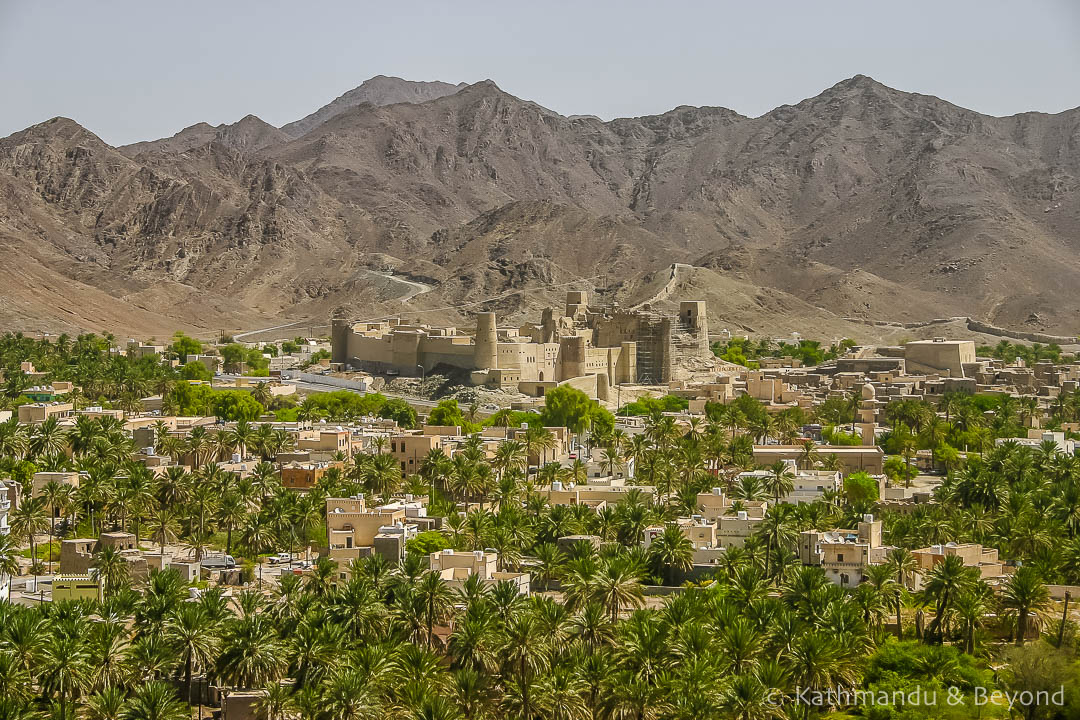
Ljubljana Castle, Slovenia
Ljubljana Castle dates back to Celtic times. Situated high above the easy-going city of Ljubljana, there are fine views of the city’s Old Town from the castle’s ramparts. From the Hapsburgs to the Nazis, the fortress has accommodated occupiers throughout its long and varied history.
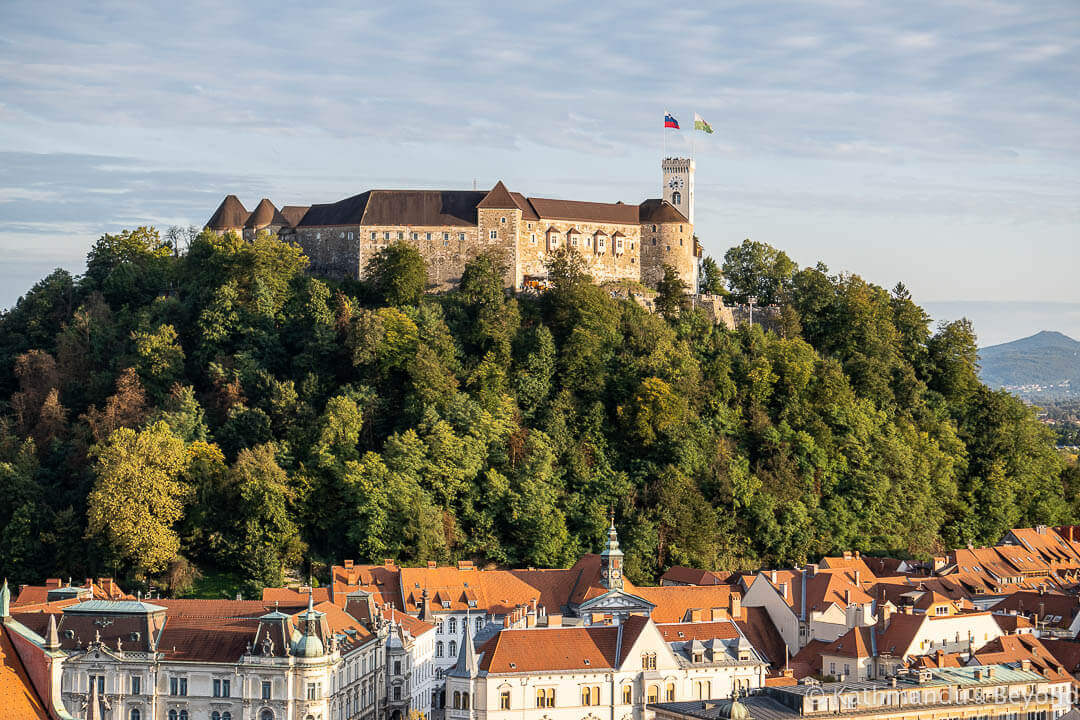
Devín Castle, Slovakia
Spawning numerous legends, the Maiden Tower sits precariously atop a hilly outcrop at Devín Castle. A short distance from Bratislava, Devín Castle commands a strategic location, overlooking the meeting point of the Morava and Danube rivers and whoever occupied the fort also controlled the trade along the two rivers. Prior to 1989, the Iron Curtain, which divided the Eastern Bloc and Western Europe, ran just in front of the castle.
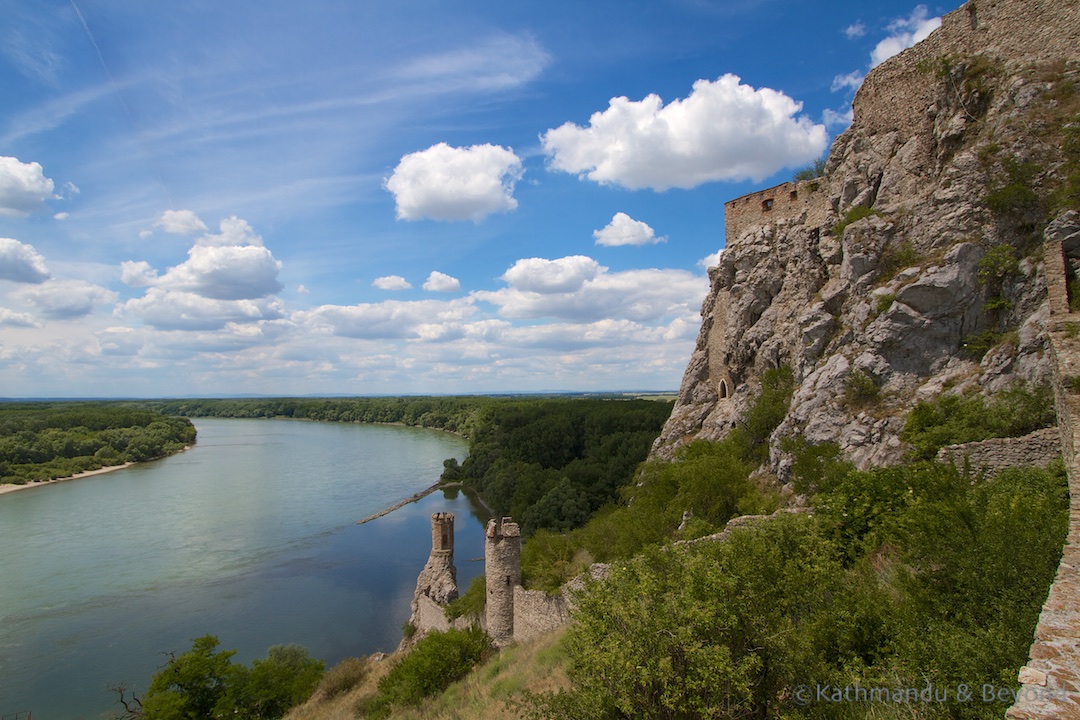
Cēsis Castle, Latvia
Dating back to the 13th century, the ruins of the medieval castle in Cēsis are the oldest settlement in the town. The castle was once the most important fortress of the Livonian Order, a breakaway branch of the Teutonic Order that was active from the 13th to the 16th century.
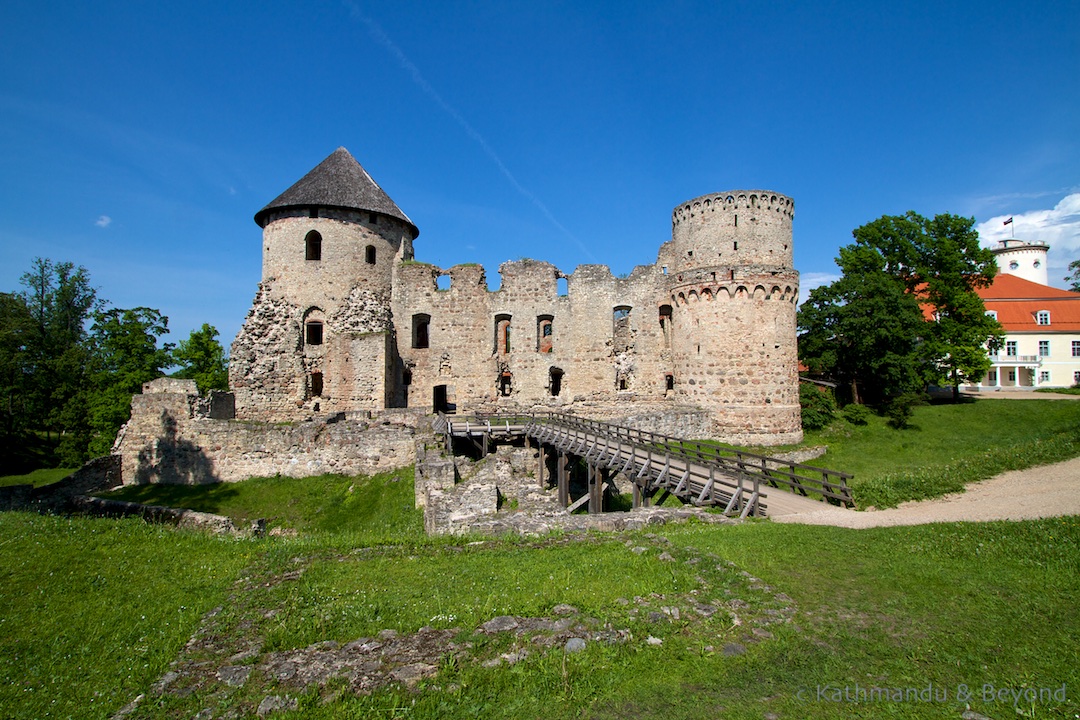
Gwalior Fort, India
The imperial-style Man Singh Palace is located inside the huge hilltop fortress at Gwalior. One of the largest and most impressive forts in India, Gwalior is just 1½ hours by train from Agra yet surprisingly it sees very few visitors.
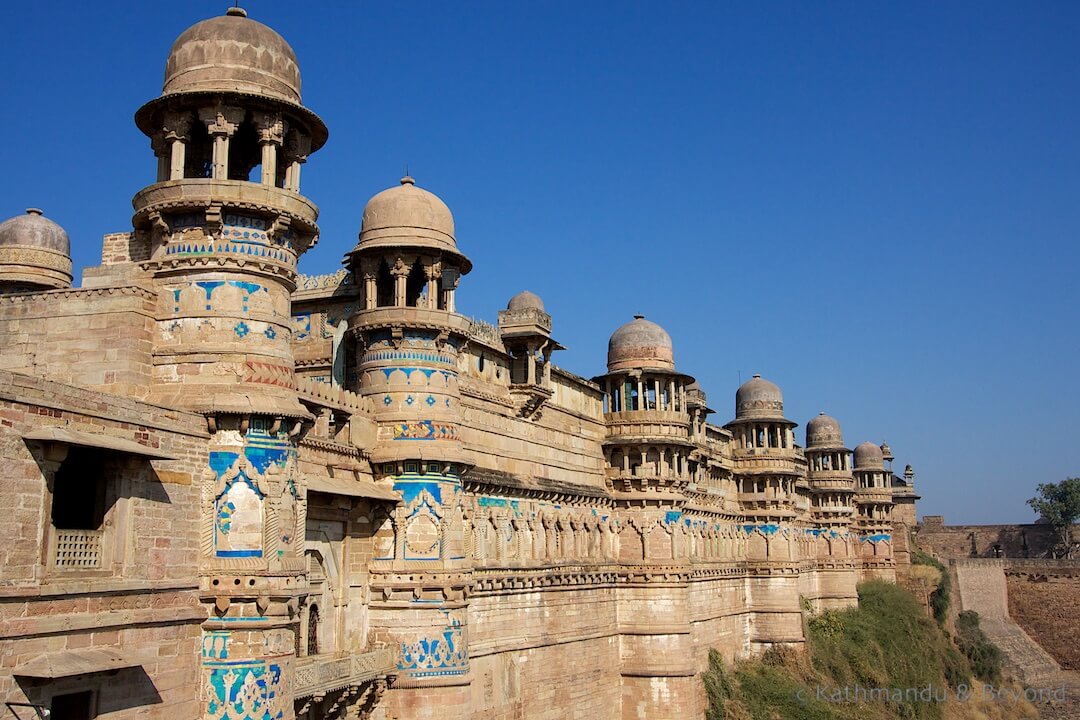
Shigatse Dzong, Tibet
Originally constructed in the 17th century and destroyed in 1961 after the Tibetan Uprising that started in 1959, the Dzong (fort) you see today was reconstructed in 2007. Situated at an altitude of 3800 metres above sea level, Shigatse Dzong is one of the highest forts in the world.
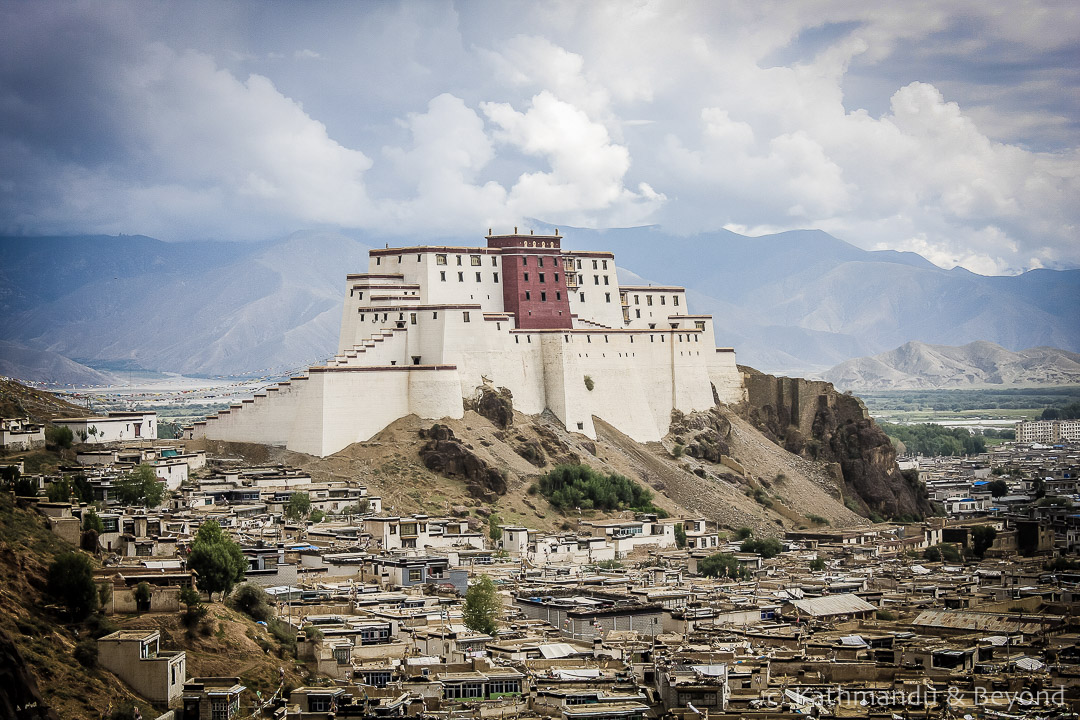
Krak des Chevaliers, Syria
Before the civil war in Syria, the UNESCO World Heritage-listed crusader fortress of Krak des Chevaliers was one of the best-preserved medieval castles in the world. Whether this is still the case is not known. The castle has been shelled numerous times and damaged by at least one airstrike. Battle scars are evident in aerial photographs but it won’t be until the war is over that the true extent of the damage can be accurately assessed.
Note: this photograph was taken during my visit to pre-civil-war Syria.
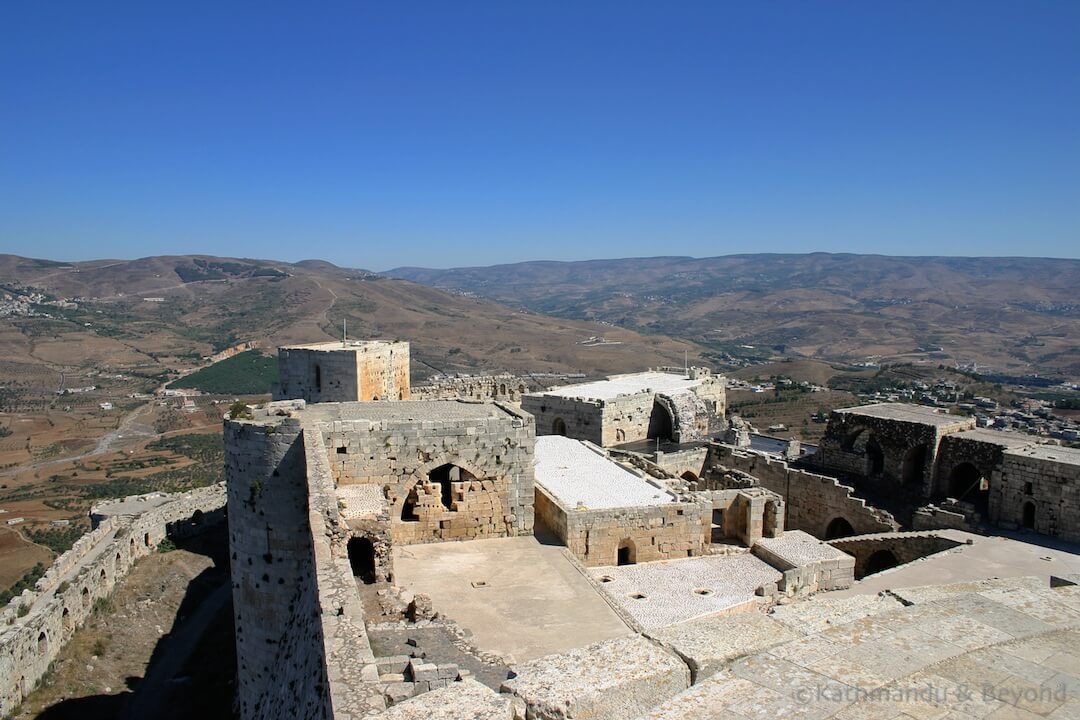
Trakai Castle, Lithuania
Located within the Trakai Historical National Park, the imposing red-brick Trakai Island Castle fell into a state of disrepair but was meticulously reconstructed in the middle of the last century. Situated on a small islet on picturesque Lake Galve, Trakai Castle has probably been a little over-restored, but it still worth a visit and an easy day trip from the Lithuanian capital, Vilnius.

Matsumoto-jo, Japan
Matsumoto Castle (Matsumoto-jō), also known as the Crow Castle, is one of Japan’s best-preserved historic castles. Defined as a flatland castle because it does not have a hilltop location nor is it situated near a river, Matsumoto Castle is surrounded by a large moat and protected by a series of gateways and interconnecting walls.
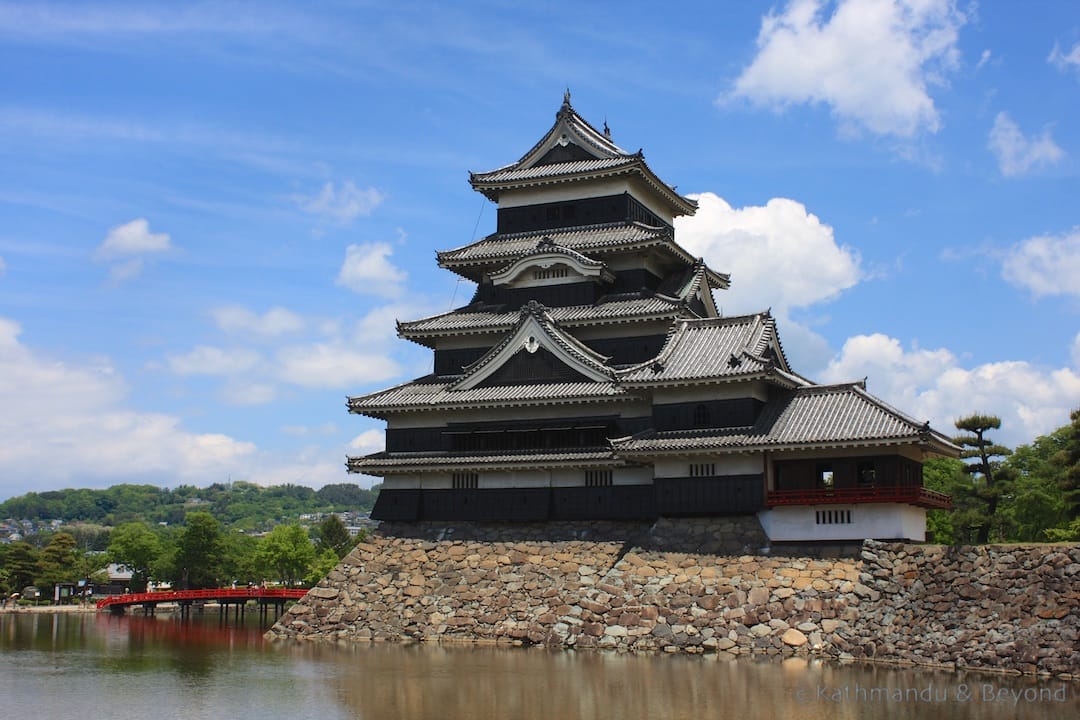
Jiayuguan Fort, China
The Ming-dynasty fort at Jiayuguan is located along the Hexi Corridor in the Chinese province of Gansu. Synonymous with the Silk Route and the Great Wall of China, this dominating fortress once stood in the middle of nowhere but Chinese expansion, being what it is, means the fort is now located on the outskirts of Jiayuguan city. The fort is still worth seeing, however, and an essential stop on any China Silk Road journey.
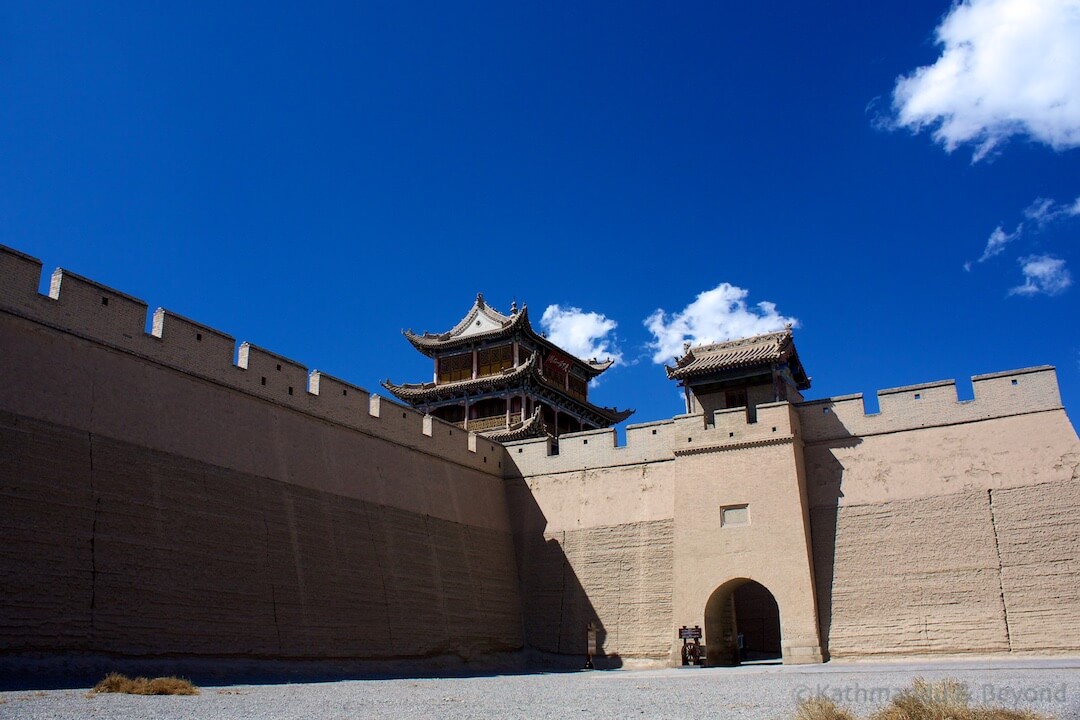
San Felipe Castle, Guatemala
Located near the lively town of Rio Dulce on the shores of Lake Isabel, San Felipe Castle is a Spanish colonial fort that was used for several centuries to help defend the town from the onslaught of pirates. The defences were clearly not that great, as the fort has been looted and destroyed several times by swashbuckling buccaneers throughout the course of its history.
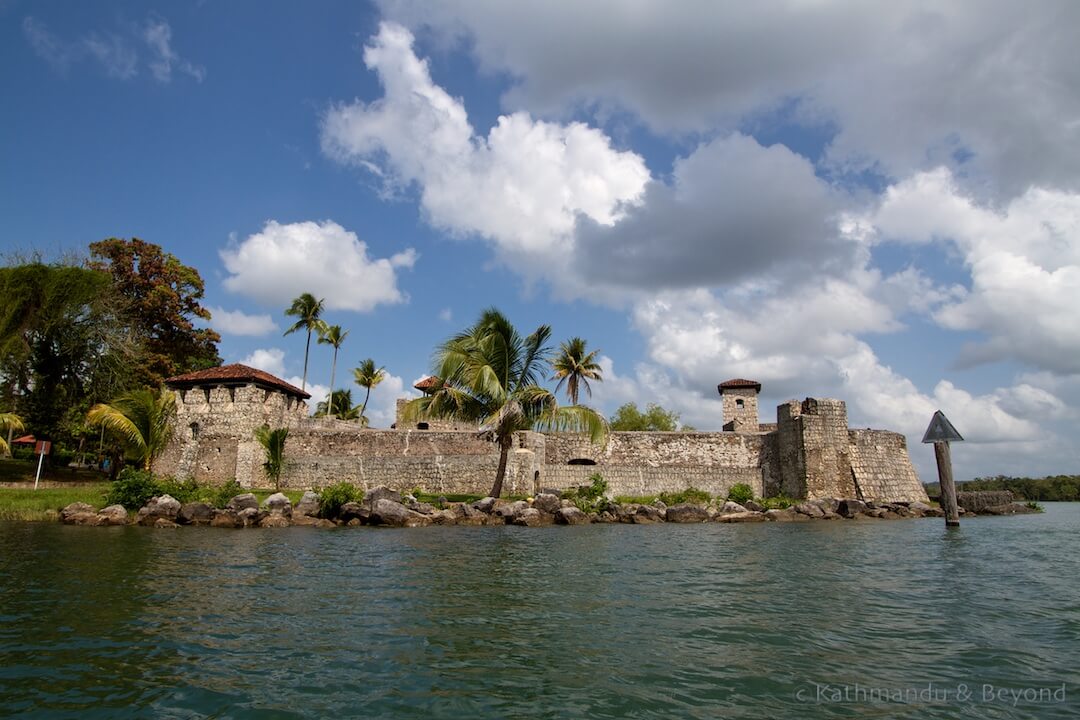
Chokhor Rabtentse Dzong, Bhutan
Chokhor Rabtentse Dzong (fort), more commonly known as Trongsar (or Trongsa) Dzong, is the largest fortress in the Himalayan Kingdom of Bhutan. As well as being one of the country’s most important monastic centres and home to around 200 monks, the building is the administrative headquarters of the Trongsar government.
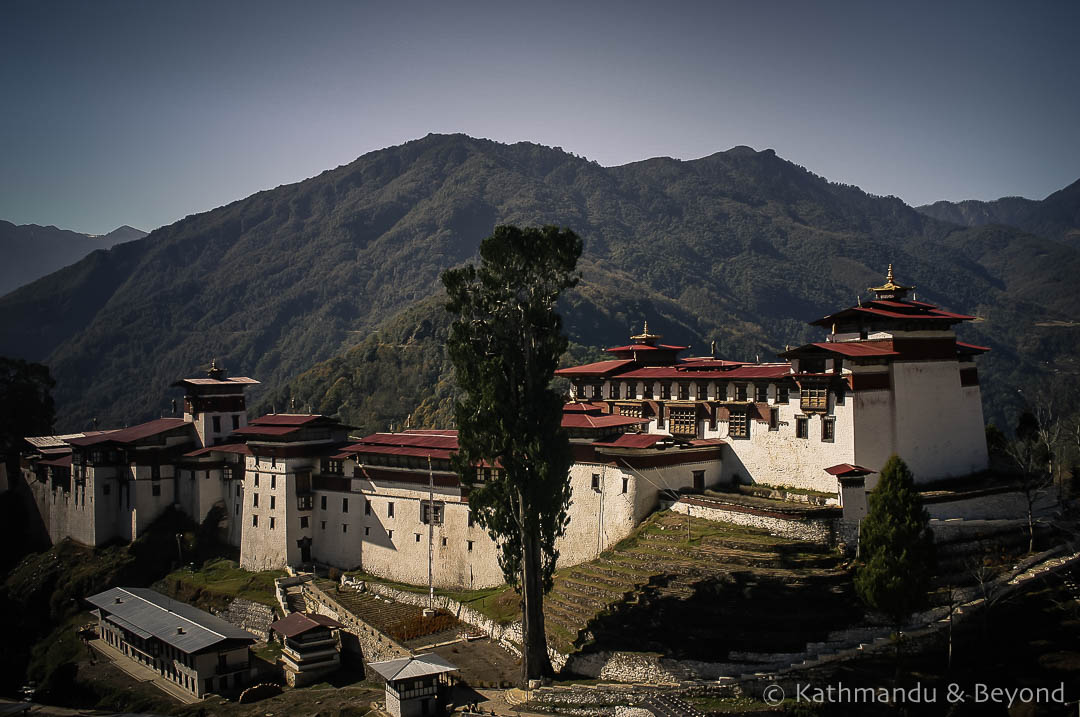

Great photos. I wonder how many fortresses you started out with before narrowing them down to twelve. The Shigatse Dzong amazed me. In 1991 it was nothing like the building in the photo, only the ruins of walls and chambers more or less the same color as the hill upon which it sits.
Ha, ha, there’s a part II waiting in the wings as I couldn’t whittle down enough! By 1995 (my first time in Tibet), I recall the dzong in Shigatse being in a bit better shape but not so Ganden monastery which was still in a state of ruin at that time. Did you go see it when you were in Lhasa, we went and then trekked onto Sakya. It was only a three day walk but it was one of the toughest treks I have ever done.
Well, I’m looking forward to Part II, not to mention Parts III, IV, and V. And I did go to Ganden, both in 1991 and 1994, and there had been a lot more rebuilding by 1994. And are you sure you trekked from Ganden to Sakya, in three days no less. That looks like about a 200 mile trek. Or maybe you trekked to a different Sakya than the one I visited, which was southwest of Shigatse.
You’re right, it wasn’t Sakya, it was Samye. Don’t think I could manage a 200 mile trek, even back then!
these forts are awesome and have so much beauty. Gwalior fort is one of my favorite fort . it have so much beauty. its design and architecture both are awesome. amazing photos.